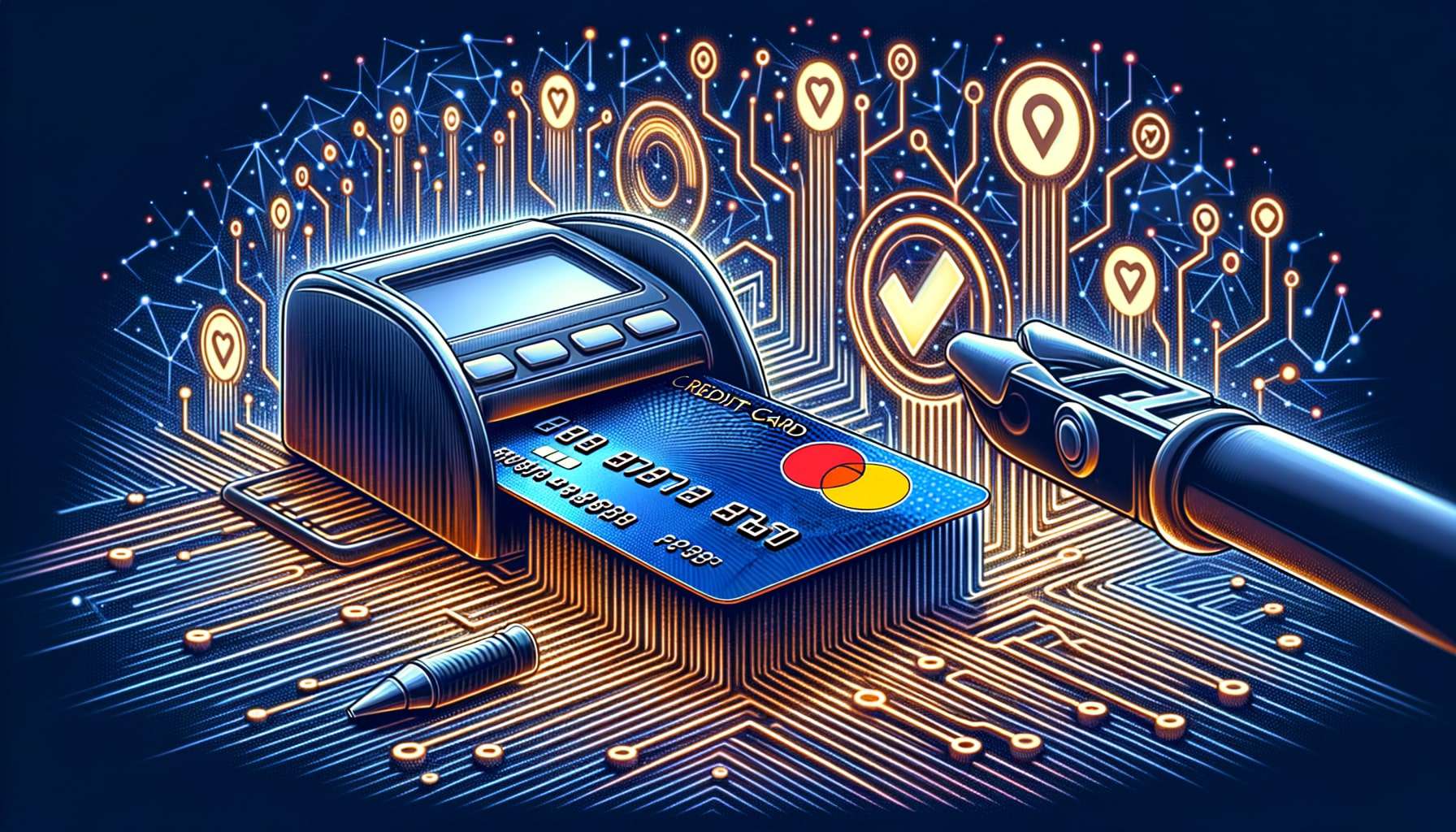
By Barbara Thomas November 30, 2024
Credit card processing is a crucial aspect of modern-day commerce, enabling businesses to accept payments from customers using credit or debit cards. It has revolutionized the way transactions are conducted, making it convenient and secure for both merchants and consumers. In this comprehensive guide, we will delve into the intricacies of credit card processing, exploring its various components, processes, and key players.
Understanding the Basics of Credit Card Transactions
Before delving into the intricacies of credit card processing, it is essential to understand the basics of credit card transactions. When a customer makes a purchase using a credit or debit card, the transaction goes through a series of steps to ensure the payment is authorized, funds are transferred, and the merchant receives the payment.
The process begins when the customer presents their card to the merchant. The merchant then swipes the card or enters the card details into a point-of-sale (POS) terminal or an online payment gateway. The card information is encrypted and securely transmitted to the payment processor.
The payment processor acts as an intermediary between the merchant and the card networks, such as Visa, Mastercard, or American Express. It validates the card details, checks for available funds, and ensures the transaction is not fraudulent. If the transaction is approved, the payment processor sends an authorization code back to the merchant.
The Role of Payment Gateways in Credit Card Processing

Payment gateways play a crucial role in credit card processing, especially for online transactions. A payment gateway is a software application that securely transmits the card information from the merchant’s website to the payment processor. It encrypts the data to protect it from unauthorized access during transmission.
When a customer makes a purchase online, they enter their card details on the merchant’s website. The payment gateway securely captures this information and sends it to the payment processor for authorization. Once the transaction is approved, the payment gateway sends a confirmation back to the merchant, allowing them to complete the sale.
Payment gateways also provide additional features, such as fraud detection and prevention tools, recurring billing options, and integration with other business systems. They ensure the security and integrity of the transaction, protecting both the merchant and the customer from potential fraud or data breaches.
The Process of Authorization and Authentication

Authorization and authentication are crucial steps in credit card processing, ensuring the validity of the transaction and the availability of funds. When a customer makes a purchase, the merchant sends the transaction details to the payment processor for authorization.
The payment processor forwards the transaction information to the card network, which then contacts the issuing bank. The issuing bank verifies the card details, checks the available funds, and determines whether the transaction should be approved or declined. If approved, the issuing bank sends an authorization code back to the payment processor.
Clearing and Settlement: How Funds are Transferred
Once a transaction is authorized, the process of clearing and settlement begins. Clearing refers to the process of exchanging information between the merchant’s bank (acquiring bank) and the issuing bank to facilitate the transfer of funds. Settlement, on the other hand, involves the actual transfer of funds from the customer’s account to the merchant’s account.
After receiving the authorization code, the payment processor sends the transaction details to the acquiring bank. The acquiring bank then sends the information to the card network, which forwards it to the issuing bank. The issuing bank deducts the transaction amount from the customer’s account and sends it to the acquiring bank.
The acquiring bank credits the merchant’s account with the transaction amount, minus any processing fees or other charges. This process typically takes a few business days, depending on the card network and the banks involved. Once the settlement is complete, the merchant can access the funds and use them for their business operations.
Key Players in Credit Card Processing

Several key players are involved in credit card processing, each playing a crucial role in ensuring smooth and secure transactions. These players include the merchant, the customer, the payment processor, the acquiring bank, the issuing bank, and the card networks.
The merchant is the business or individual selling goods or services and accepting credit card payments. They are responsible for initiating the transaction and ensuring a seamless payment experience for the customer.
The customer is the individual making the purchase and using their credit or debit card to pay for it. They provide their card details to the merchant and authorize the transaction.
The payment processor acts as an intermediary between the merchant and the card networks. They validate the transaction, check for available funds, and ensure the payment is secure and authorized.
The acquiring bank is the financial institution that provides the merchant with a merchant account, allowing them to accept credit card payments. They facilitate the transfer of funds from the customer’s account to the merchant’s account.
The issuing bank is the financial institution that issued the credit or debit card to the customer. They verify the card details, check for available funds, and authorize or decline the transaction.
The card networks, such as Visa, Mastercard, or American Express, provide the infrastructure and technology that enable the transfer of funds between the various players involved in credit card processing.
Different Types of Credit Card Processing Fees

Credit card processing involves various fees that merchants must pay for the convenience and security it offers. These fees can vary depending on the type of transaction, the card network, the acquiring bank, and other factors. Let’s explore some of the common types of credit card processing fees.
Interchange fees: Interchange fees are charged by the card networks and the issuing banks for each transaction. They are a percentage of the transaction amount and cover the cost of processing the transaction, managing the risk, and providing the infrastructure for secure payments.
Assessment fees: Assessment fees are charged by the card networks, such as Visa or Mastercard, for each transaction. They are a small percentage of the transaction amount and cover the cost of maintaining the network and providing additional services to merchants and cardholders.
Processing fees: Processing fees are charged by the payment processor for each transaction. They can be a flat fee or a percentage of the transaction amount and cover the cost of processing the transaction, providing customer support, and maintaining the payment infrastructure.
Monthly fees: Monthly fees are charged by the acquiring bank or the payment processor for maintaining the merchant account and providing additional services. These fees can include statement fees, account maintenance fees, or gateway fees.
Chargeback fees: Chargeback fees are charged to the merchant when a customer disputes a transaction and requests a refund. These fees cover the cost of investigating the dispute and processing the refund.
Security Measures in Credit Card Processing
Security is a paramount concern in credit card processing, given the sensitive nature of cardholder data and the potential for fraud or data breaches. Various security measures are in place to protect the integrity of transactions and ensure the safety of cardholder information.
Encryption: Encryption is used to protect cardholder data during transmission. Payment gateways and POS terminals use encryption algorithms to scramble the data, making it unreadable to unauthorized parties.
Tokenization: Tokenization is a process that replaces sensitive cardholder data with a unique identifier called a token. The token is used for transaction processing, while the actual card data is securely stored in a separate system. This reduces the risk of data breaches, as the token has no value to potential attackers.
PCI DSS compliance: The Payment Card Industry Data Security Standard (PCI DSS) is a set of security standards that all merchants accepting credit card payments must adhere to. It includes requirements for secure network architecture, encryption, access controls, and regular security audits.
Fraud detection and prevention: Payment processors and card networks employ sophisticated fraud detection and prevention tools to identify and prevent fraudulent transactions. These tools analyze transaction patterns, cardholder behavior, and other data points to detect potential fraud and flag suspicious transactions for further investigation.
Common Challenges and Risks in Credit Card Processing
While credit card processing offers numerous benefits, it also comes with its fair share of challenges and risks. Merchants must be aware of these challenges and take appropriate measures to mitigate the associated risks.
Chargebacks: Chargebacks occur when a customer disputes a transaction and requests a refund from their issuing bank. Chargebacks can be costly for merchants, as they not only result in the loss of revenue but also incur chargeback fees and potential penalties.
Fraud: Fraud is a significant risk in credit card processing, with criminals constantly devising new ways to exploit vulnerabilities in the system. Merchants must implement robust fraud detection and prevention measures to protect themselves and their customers from fraudulent transactions.
Data breaches: Data breaches can have severe consequences for merchants, leading to the loss of customer trust, financial penalties, and legal liabilities. Merchants must invest in secure payment infrastructure, regularly update their systems, and comply with industry security standards to minimize the risk of data breaches.
Compliance: Compliance with industry regulations and standards, such as PCI DSS, can be challenging for merchants, especially small businesses with limited resources. Failure to comply with these standards can result in fines, penalties, and reputational damage.
Frequently Asked Questions about Credit Card Processing
Q: What is a payment gateway?
A payment gateway is a service that securely transmits payment information between the merchant, the customer, and the credit card networks.
Q: How long does it take for funds to be deposited into my account?
The time it takes for funds to be deposited into your account can vary depending on the credit card processor and your bank. Typically, it takes 1-3 business days for funds to be settled and deposited.
Q: Can I accept credit card payments without a merchant account?
Yes, there are third-party payment processors, such as PayPal or Stripe, that allow you to accept credit card payments without a traditional merchant account.
Q: What is a chargeback?
A chargeback occurs when a customer disputes a transaction and requests a refund from their issuing bank. Chargebacks can result in financial losses for the merchant and can be caused by reasons such as fraud, product dissatisfaction, or unauthorized transactions.
Q: How can I reduce credit card processing fees?
To reduce credit card processing fees, compare rates from different processors, negotiate markup fees, and ensure that you are using the most cost-effective pricing structure for your business.
Conclusion
Credit card processing has transformed the way transactions are conducted, making it convenient and secure for both merchants and consumers. As technology continues to evolve, credit card processing is expected to become even more seamless and efficient.
Mobile payments, contactless payments, and digital wallets are gaining popularity, allowing customers to make payments using their smartphones or wearable devices. These technologies offer enhanced convenience and security, eliminating the need for physical cards and reducing the risk of fraud.
Artificial intelligence and machine learning are also playing a significant role in credit card processing, enabling more accurate fraud detection and prevention. These technologies analyze vast amounts of data in real-time, identifying patterns and anomalies that may indicate fraudulent activity.
Overall, credit card processing will continue to evolve, driven by advancements in technology, changing consumer preferences, and the need for enhanced security. Merchants must stay abreast of these developments and adapt their payment systems to provide a seamless and secure payment experience for their customers.